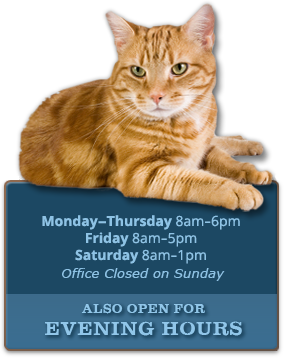June is Adopt-A-Cat Month - Here's How to Find the Right Purring Companion

You may have heard the saying, "You own a dog, but you feed a cat." It is true that cats value their independence a bit more than their canine counterparts. But, if you've ever been around cats, you already know they crave and require love and companionship. Cats make wonderful pets and most easily adjust to a variety of lifestyles and living spaces. Every cat is a true individual though, so it's important to take the time to choose a four-footed friend who's right for you. A cat's personality, age and appearance, as well as the kinds of pets you already have at home, are all things you should keep in mind when making your selection.
If you've ever been to a shelter, you have probably noticed that some cats meow and head butt the cage door while others simply lie back and gaze at you with a look of total ambiguity. There are as many different personalities of cats as there are cats in the shelter. Which disposition is best for you? YOU have to decide.
Regardless of individual personality, look for a cat that is playful, active, alert and comfortable while being held. At the shelter, ask an adoption counselor for assistance when you wish to spend some time with individual cats. Because they are in an unfamiliar environment, some cats that are usually quite social may be frightened or passive while in the shelter.
As a general rule, kittens are curious, playful and full of energy, while adult cats are more relaxed and less mischievous. Kittens also require more time to train and feed. Cats are only kittens for a few months, though, so the age of the cat you adopt should really depend on the level of maturity you are looking for. Young children usually don't have the maturity to handle kittens responsibly, so a cat that is at least 4 months old is probably the best choice for homes with young children.
They All May Be Cute, But Which Is Right For You?
Though dogs also have differences in coat, choosing the length of coat on a cat is a little different. Because the hair is generally finer and cats generally shed more, hair length can be an important part of your decision. Cats can have long, fluffy coats or short, dense fur and the choice between the two is chiefly a matter of preference, availability and your willingness to devote time to regular grooming. Short-haired cats are generally easier to come by since they're the most popular and the most common. Keep in mind that long-haired cats require frequent grooming to remain mat-free. Felines with short coats also require brushing, though less frequently. Most cats enjoy a regular brushing and look forward to this daily ritual.
If you already own a cat or dog, you're probably wondering how easy it is to add a cat to the family. The good news is that cats can get along with other cats, and despite the common stereotype, most dogs can get along with cats too. Unfortunately, introducing a new cat to a home with other pets can be time consuming and require patience on your part.
The best way to handle adding a new cat to the home is to provide time for a period of adjustment. You can do this effectively by isolating your new feline in a room of his own for a while, something that is a good idea for a new cat anyway. After several days, supervise meetings between the animals for periods of increasing length. Most cats will soon learn to accept each other. Some dogs simply won't tolerate the presence of a cat, but by carefully introducing them, most problems can be solved.
No matter which kind of cat you choose, remember that you're making a commitment to love and care for your new feline friend for his or her lifetime. That could mean 10, 15 or even 20 years. So choose you new companion carefully and be a responsible pet owner. In no time at all, you'll know how wonderful sharing your home with a cat can be.
For more information about Adopt-A-Cat month, please visit the American Humane Association's website.




